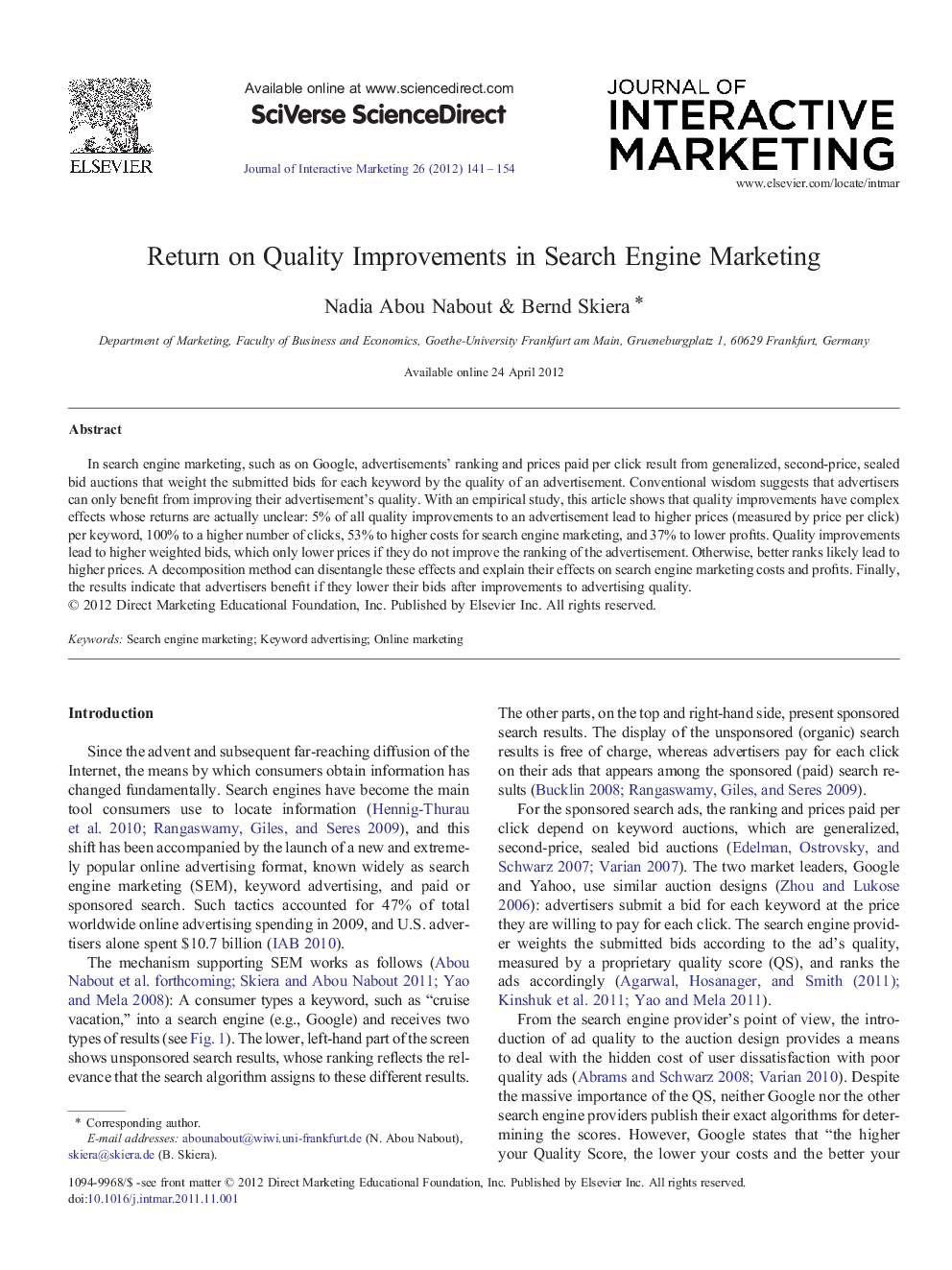| Article ID | Journal | Published Year | Pages | File Type |
|---|---|---|---|---|
| 886069 | Journal of Interactive Marketing | 2012 | 14 Pages |
In search engine marketing, such as on Google, advertisements' ranking and prices paid per click result from generalized, second-price, sealed bid auctions that weight the submitted bids for each keyword by the quality of an advertisement. Conventional wisdom suggests that advertisers can only benefit from improving their advertisement's quality. With an empirical study, this article shows that quality improvements have complex effects whose returns are actually unclear: 5% of all quality improvements to an advertisement lead to higher prices (measured by price per click) per keyword, 100% to a higher number of clicks, 53% to higher costs for search engine marketing, and 37% to lower profits. Quality improvements lead to higher weighted bids, which only lower prices if they do not improve the ranking of the advertisement. Otherwise, better ranks likely lead to higher prices. A decomposition method can disentangle these effects and explain their effects on search engine marketing costs and profits. Finally, the results indicate that advertisers benefit if they lower their bids after improvements to advertising quality.
► We calculate the return on ad quality improvements in search engine marketing. ► Our empirical analysis indicates that improvements to advertising quality can even lower profit. ► The reason is that ad quality improvements only lead to lower prices if the ad keeps its rank. ► Advertisers benefit if they lower their bids after improvements in their advertising quality.
